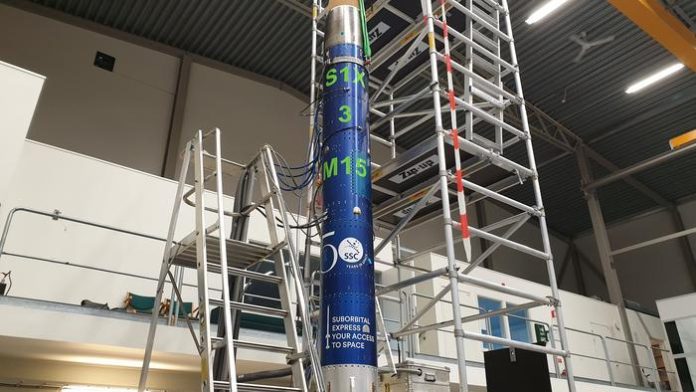
A world-first study proves microbes essential for human health can survive the extreme forces of a space rocket launch and re-entry unharmed.
This finding by RMIT University is a major step toward sustaining life on long-duration missions to Mars
Led by RMIT University, researchers have delivered a crucial piece of the puzzle for future deep-space missions: essential bacteria for human health can survive the most brutal forces of a rocket launch and re-entry unharmed. The findings, published in npj Microgravity, are a major boost for space agencies planning crewed missions to Mars, which will require sustainable life support over decades.
The study proves that the spores of Bacillus subtilis—a bacterium vital for supporting the human immune system, gut health, and blood circulation—can withstand the rapid acceleration, short-duration microgravity, and crushing deceleration of a suborbital spaceflight. The experiment saw the bacteria launched high into the sky on a sounding rocket before being recovered and studied.
Space and essential bacteria: The ultimate stress test
To test the microbes’ resilience in real-world conditions, researchers blasted the bacterial spores to the edge of space on the Suborbital Express 3 – M15 59 sounding rocket. The short flight subjected the samples to a dizzying array of extreme conditions.
During the launch, the rocket experienced a maximum acceleration of about 13 g—13 times the force of Earth’s gravity. Upon reaching an altitude of roughly 260 kilometres, the main engine cut off, initiating a period of weightlessness, or microgravity, that lasted for over six minutes. The ultimate stress came during re-entry into the Earth’s atmosphere, where the payload endured extreme deceleration forces of up to 30 g while spinning at around 220 times per second.
Crucially, the post-flight analysis revealed that the recovered B. subtilis spores showed no changes in their ability to grow, and their structure remained intact. This demonstrated that a key microbe for human survival is resilient enough to handle the physical demands of space travel.
Designing healthier life support systems
Study co-author Distinguished Professor Elena Ivanova from RMIT University explained the significance for long-term space exploration. “Our research showed an important type of bacteria for our health can withstand rapid gravity changes, acceleration and deacceleration,” Ivanova said. “It’s broadened our understanding on the effects of long-term spaceflight on microorganisms that live in our bodies and keep us healthy.”
Maintaining astronaut health on missions lasting years, such as a future Mars colony, will necessitate robust life support systems. RMIT space science expert Associate Professor Gail Iles added that the findings are crucial for this planning. “By ensuring these microbes can endure high acceleration, near-weightlessness and rapid deceleration, we can better support astronauts’ health and develop sustainable life support systems,” she noted
Beyond space: Benefits for life on earth
The implications of this research extend far beyond the cosmos. Understanding the limits of microbial survival in extreme conditions could spur innovations in biotechnology.
Professor Ivanova suggests potential applications on Earth could include developing new antibacterial treatments and enhancing humanity’s ability to combat antibiotic-resistant bacteria. “We’re a while away from anything like that, but now we have a baseline to guide future research,” she explained.
The search for extraterrestrials
A broader knowledge of microbial resilience in harsh environments could also guide the search for extraterrestrial life. Associate Professor Iles stated that this understanding could help develop more effective life-detection missions, aiding in the identification of microbial life forms thriving in environments previously thought to be uninhabitable.










